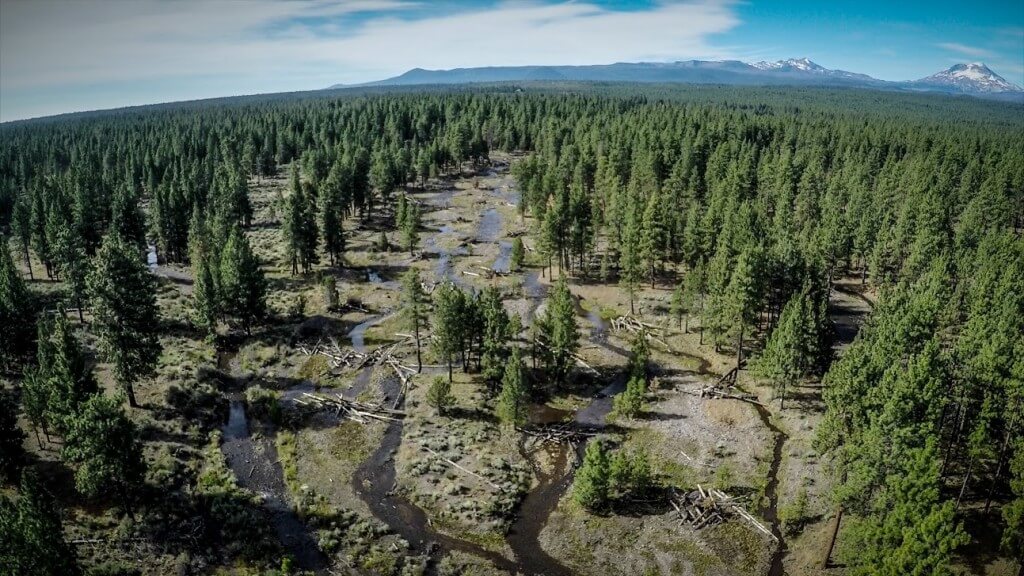Pine Meadow Ranch Dam Removal
Pine Meadow Ranch is a 200-acre farm located along Whychus Creek immediately upstream from the City of Sisters, Oregon with surface water rights dating back to the late 1800s. The irrigation water for the ranch was previously being diverted from a dam that blocked migratory fish access to 13 miles of upstream habitat. In addition, the irrigation diversion was not equipped with a fish screen. The dam was located in the middle of a broad floodplain where the channel had to be continually manipulated to keep the dam in operation. Upper Deschutes Watershed Council’s (UDWC) initiated a project that focused around opening up fish passage, allowing the Deschutes National Forest to restore the floodplain along 1.25 miles of creek while continuing to supply the ranch with much-needed irrigation water.
Over a period of more than five years, UDWC worked with Pine Meadow Ranch to develop a solution that would address these problems, while simultaneously being cost-effective and resulting in the reliable delivery of water to Pine Meadow Ranch. Throughout this process, UDWC examined eight different alternatives and consulted with a variety of local partners to identify potential solutions. In the end, a holistic solution was negotiated with Pine Meadow Ranch with support from the Deschutes River Conservancy and the Deschutes National Forest.
Through the collaborative process, the team worked together to remove the dam, open up fish passage 13 miles of upstream habitat, provide fish screening, reconnect Whychus Creek to 170 acres of floodplain and provide in-stream habitat for fish. In addition, the comprehensive project included restoring one cubic foot per second (cfs) of senior water right permanently instream through the elimination of a leaky irrigation ditch and the use of Oregon’s Conserved Water program. The project not only benefited farmers, fish and the surrounding ecosystem, it highlighted the investment in time and relationship building needed to complete a successful dam removal and floodplain restoration project.
The last phase of floodplain restoration work using heavy equipment was completed in August 2015. From 2015 to 2016, over 45,000 riparian plants and shrubs will be planted in the floodplain by local volunteer, community and school groups along with paid planting crews. Project monitoring will be ongoing for a number of years to evaluate project effectiveness.
River Network has helped UDWC develop and maintain capacity over the years through trainings, professional development and other resources. This kind of support has helped the organization remain strong, well-connected to peers, and engaged in the broader restoration community.





